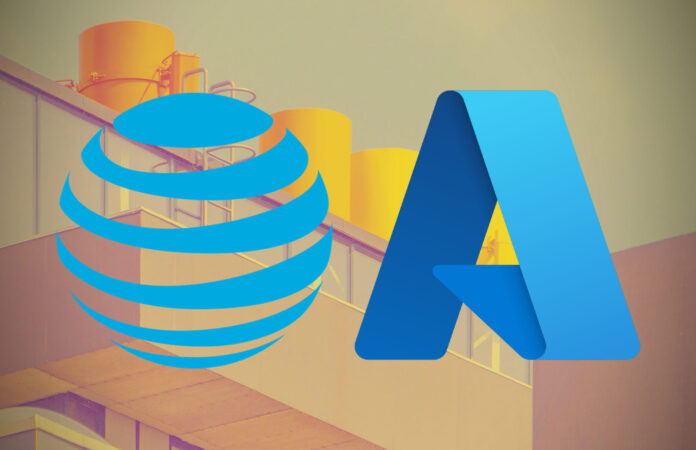AT&T is working with Microsoft to enable US enterprises to roam from private LTE and 5G networks using the shared CBRS band to public networks using its own licensed spectrum and national infrastructure. The new AT&T Private 5G Edge product will sit alongside Microsoft’s Azure public MEC with AT&T offer, formerly aligned with AT&T as a resident spin on its Azure Edge Zones to boost general-purpose LTE and 5G apps with lower edge-based latencies.
The service will be developed (“more details on the roadmap”) through 2022, said AT&T, without committing to a 2022 launch date. It is pitched as a roaming complement for enterprises bent on using privately-licensed CBRS spectrum for privately-specified LTE and 5G networks in the 3.55-3.7 GHz CBRS band in the US. AT&T said the new private-public network-and-compute bundle will also integrate (“embedded”) IoT applications ‘out of the box’.
It appears AT&T will, effectively, resell Microsoft’s own 5G core network to enterprises, from Metaswitch, as part of the offer, alongside Microsoft’s multi-access edge compute (MEC) services in AT&T public network infrastructure. It stated: “We are including the valuable ability to roam beyond the geographical boundaries of the AT&T private network and still stay connected through the AT&T public network… The service [uses] Azure private MEC with Azure Private 5G Core to help deploy these private networks rapidly across radio spectrums, including CBRS.”
AT&T cited use cases in sundry ‘verticals’ already making headway in the CBRS band with their own (mostly LTE) deployments, including “retail stores, manufacturing plants, restaurants, schools, and more”. Perhaps significantly, it said the whole enterprise bundle will work for organizations “of all shapes and sizes – to get their private edge networks up and running, with reach across the US”.
Until now, the perception is the private networks market has been dominated by larger-sized early adopters, or else less highly-engineered LTE-style workplace mobility solutions, as alternatives to public Wi-Fi. It said the new AT&T Private 5G Edge product will be an “integrated platform with connectivity and applications”. It is likely the IoT aspect, pre-integrated and pre-approved, will come in major part from Microsoft’s Azure IoT play.
But AT&T has its own IoT marketplace, alongside, mostly focused on old-style M2M and new-mode cellular IoT. AT&T stated: “We want to enable those IoT capabilities without requiring complex setup or valuable floor space. It’s flexible and expandable, so customers can start testing and experimenting with modest investments and deployments.”
The Private 5G Edge service is available in preview-phase to enterprises and developers; over-the-top app development is a major driver for the launch, acknowledged AT&T, describing it as a “foundation on which businesses and other customers can test, build, and deploy the next generation of 5G apps and services”. It explained its timing by noting the wider private 5G market remains in the throes of early development.
It said: “Organizations are still learning what these technologies are, how they can help their operations, and what it takes to get them up and running… We’re working [with]… customers to understand their needs, challenges, and aspirations when it comes to private cellular networks and edge computing… It’s early days, and we’re talking to customers in different vertical markets to figure out together how this technology can best be applied.”
Rupesh Chokshi, vice president of product strategy and innovation at AT&T Business, said: “This solution opens the door to entirely new applications and use cases we haven’t even imagined yet. The combination of 5G and edge compute can utterly transform how businesses are run, no matter the size, and we’re proactively engaging with those businesses to identify the right compelling opportunities. Our collaboration with Microsoft is exciting because it combines technology with an adaptable business model and brings innovation to life – for any customer.”
Tad Brockway, corporate vice president for Azure operator clients at Microsoft, said: “Secure private 5G networks enable organizations to deliver latency-sensitive applications. Together with Microsoft, AT&T is streamlining the integration of the multiple elements private wireless solutions require, simplifying the application creation environment and accelerating the speed of deployment.”

